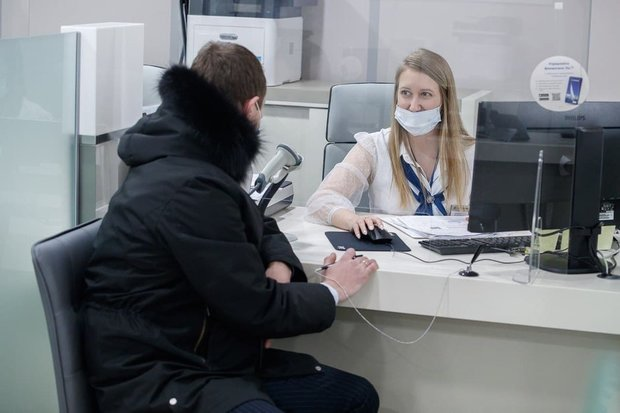Experts on banks’ unions: ‘Such an option would be a lifeline’
According to the Bank of Russia’s idea, the mechanism will allow reducing small banks’ costs, but it is yet unknown how this will work in practice
The Bank of Russia has offered a new mechanism of support for small banks by reducing costs — to create “a resemblance of bank unions” with big ones. At the same time, small banks will have to remain independent in all key decisions and receive information, technological and expert support in the unions. Most experts in the banking sphere surveyed by Realnoe Vremya agree that the initiative of the Central Bank will help small banks that “are not handling growing costs” now to stay afloat.
“Crises stimulate mergers and takeovers”
The Central Bank is working on the possibility of creating unions of banks without share buyout but with mutual responsibility of all members. Chair of the Central Bank Elvira Nabiullin said this at a meeting of the Association of Banks of Russia:
“We are preparing offers of the new possibility of creating bank unions without share buyout but with mutual responsibility of all members. A similar system recommended itself well in some countries. The idea is that small banks will join a bigger one becoming its business partners. They will be able to receive information, technological and expert support from the ‘senior’ bank. As a result, the main focus of the supervision will be consolidated, while operational and regulatory burden will dramatically decrease for the members,” claimed the head of the Bank of Russia.
Assessing the regulator’s initiative, head of the Analytic Department of BCF bank Maksim Osadchy noted in a talk with Realnoe Vremya that crises often become drivers of changes, including in the banking sphere. Also, growing costs indeed severely hit small banks:

The expert noted that the regulatory burden constantly increases, banking digital technologies rapidly develop. All this requires additional expenses, hiring additional staff. “Many small banks aren’t handling the growing costs. Their owners have to choose to either give the licence or sell it. The loss of independence can be uninteresting for bank owners, and in the end these banks simply stagnate and die. The creation of different forms of bank unions could be a way out of this situation,” he explained.
“Such an option is possible and could be even a lifeline”
The interlocutor of the newspaper thinks that the support mechanism considered by the Central Bank can save small regional banks whose collapse would seriously impact the country’s banking system:
“In the Russian practice, there is an option when a holding owns a group of banks. The other option can precisely become its alternative, like it happened to Raffeisenbank, when small banks own large ones. They hold shares, use its brand. A large bank provides small ones with technologies, expertise, represent their interests in the Central Bank and other public structures. Such an option is possible and would be even a lifeline for some small Russian banks. And there is certain public interest in their salvation because the destruction of the regional banking infrastructure of Russia with its colossal dimensions is obvious wrecking. Processes of monopolisation and nationalisation of the banking sector don’t favour the Russian economy’s growth.”
The benefit from the union for small banks is plain to see. However, will the big players, including those sanctioned by Western countries, use smaller ones to bypass sanctions? In Osadchy’s opinion, such an option is excluded:
“Such an approach shouldn’t become an instrument to bypass the sanctions. The relations between the banks will anyway be documented legally. Transactions with a bank under sanctions are a reason to impose the same sanctions. For instance, Eurofinance Mosnarbank was imposed US sanctions for cooperating with a Venezuelan public oil company, which is under sanctions.”
It is early to talk about the creation of union as a matter of fact yet, the expert is convinced. The task of the Central Bank is to elaborate mechanisms of creation and operation of new structures.
“There is a way to go to the decision, only possible approaches are now being considered. Raffeisenban has gone through this stage, but now it isn’t a union of corporate banks any more. Now it is a classic holding. Should we repeat this process? It is a big question. There is a union of independent banks with mutual responsibility everybody knows about — it is the Federal Reserve System. It is 12 independent regional banks united in America’s Central Bank. But Mrs Nabiullin unlikely means such an option.”
“Our strategy won’t have any investments in the near future”
Director of the Banking Institute of Higher School of Economics National Research University Vasily Solodkov, in turn, is sure that not only small banks but also big market players need support, but the benefit from the consolidation for big banks is very questionable:

According to the expert, the offer to unite small banks with bigger ones is the Central Bank’s reaction to the tough situation in the economy. The blow of sanctions on the banking sector is already more than perceptible:
“It is important to understand that the state will support banks that are under sanctions till the last ruble from the taxpayer’s pocket because these are often public banks. On the one hand, it is quite a complicated market situation because traditional money making forms disappeared for them, on the other hand, they have the state’s power behind.
Because look, the absolutely unclear bank SMP continues operating. Moreover, even transfer cannot be made from this bank to any other Russian bank. These are the sanctions it was imposed. We have all logistic chains disrupted, the ruble stopped being an easily converted currency, our country won’t have any investments in the near future — either financial or technological. The entire economy is at risk, not only some sectors.
Solodkov thinks that the privacy of information of banks’ financial situations doesn’t allow making some accurate forecasts. Nevertheless, judging by the offer to unite the banks, the Central Bank is actively trying to influence the full picture:
“The situation isn’t fun in both big and small banks. Also, we should understand that there was a gap between credit and deposit rates. In other words, there was a period when deposit rates turned out to be higher than credit rates in loans that were granted earlier. The Central Bank is now lowering the rate, consequently, the situation is improving. Moreover, the information about banks’ financial situation turned out to be private now, therefore we can read only coffee grounds not knowing what is happening in fact.

“There hasn’t been such pure consolidation in the banking sphere”
Economist, Director General of BusinessDrom analytic agency Pavel Samiyev stresses that the way of consolidation can really avoid big problems in small banks:
“On the one hand, of course, this is necessary, of course because many small banks indeed are having problems with maintaining profitability and staying in the market further, keeping financial stability and profitable business because they are losing the niches they were specialised in. The competition is very high there and there are issues with additional capitalisation, shareholders’ capabilities to support are running out. And it is necessary to look for ways of getting out of this business.”
He says that it is hard to sell a bank for an investor: “Indeed, new investors’ interest is very low now, and if there is some, there is a high risk these banks can switch to not really legal operations, so to speak. Some investors “directly consider banks not for a banking activity.” And this risk for current shareholders is to be sold to such investors because they will receive complaints from regulators later. “This is why perhaps it is really necessary to consider the consolidation through bigger structures that will buy small banks from such ‘tired’ bankers,” thinks Samiyev.
Nevertheless, the interlocutor of the newspaper notes that the details of the union aren’t completely clear. Moreover, there has been no such thing in the history of Russian banking, which means there a long road from the Central Bank’s offer to the reality.

This hasn’t happened in history, expert noted: “There have been either deals with private investors or the state when it bought out some big public bank or bank assets for some funds, such a reverse process compared to privatisation, indeed happened in some countries. These are again individual cases when banks were chronically unprofitably, there weren’t investors and something like this happened.” However, there hasn’t been such pure consolidation in the banking sphere, highlighted Samiyev. Though he put examples of unions through sanation:
“It has almost happened here, it is one of the ways of consolidations but forced one when the consolidator gathers troubled banks and restores them.” He says there are a lot of such examples in the world, but not in the way the Central Bank is now discussing.